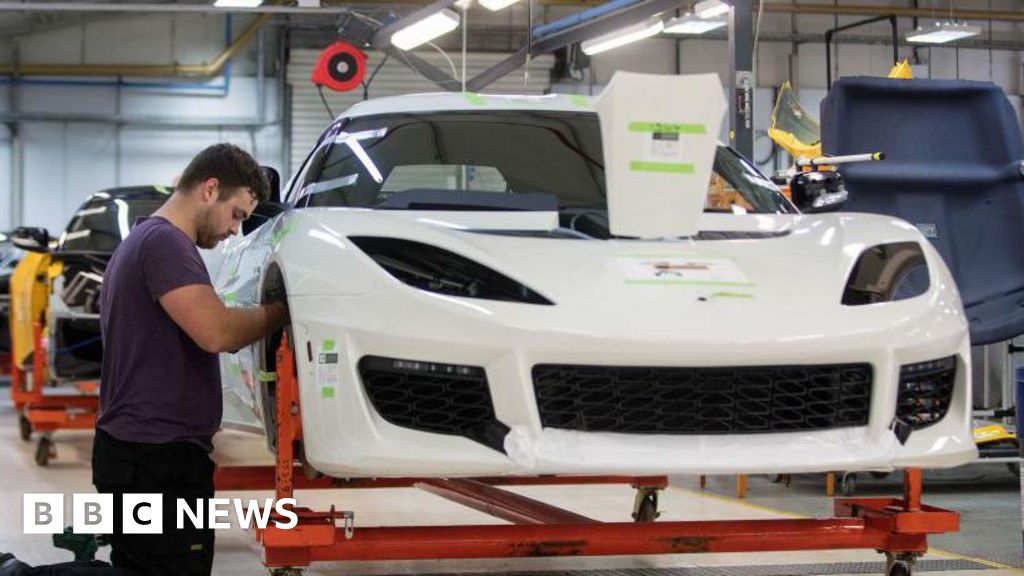We’ve spent decades worrying about the dangers of China’s rise. We should worry even more if that rise is coming to a halt.
Tensions between the two countries are as high as they’ve been since the 1980s. And things are likely to get worse. One of the few points of agreement between Republicans and Democrats is that both want to decrease American dependence on Chinese manufacturing. On China’s side, friction over Taiwan is intensifying. Taiwan’s status as a stable democracy is a constant challenge to a Chinese Communist Party that wants to assert control over the island. At the same time, American policymakers are stepping up their support for Taiwan, driven both by the desire to counter China and in response to the country’s critical importance to the world economy stemming from its dominance of the manufacture of advanced semiconductors (as brilliantly described in Chris Miller’s Chip War).
But that’s the baseline of the relationship. Some experts in international relations have warned that China’s rise poses a particular risk because it might surpass the United States, and that such hegemonic transitions often lead to war (an idea known as power transition theory). Graham Allison described this threat in his 2017 book Destined For War: Can America and China Escape the Thucydides Trap? (Graham was also my boss in my very first job after college).
But what if China isn’t going to pass the United States? China’s astonishing multi-decade rise, one whose scale and speed has no historical parallels (the closest one is Germany from the 1870s until 1914) seems to have slowed, and perhaps even come to a halt.
Some economists have labeled China as falling prey to the “middle income trap,” where it is unable to keep up with more developed nations due to rising wages and factors such as the United States’ investment in EV manufacturing and renewable energy. The Wall Street Journal recently reported that China’s old ways of increasing growth have begun to bear diminishing returns, and unless it begins pulling new levers to accelerate growth, it could find itself stuck.
As countries like South Africa and Brazil have learned, it is incredibly difficult to escape the middle income trap, and while some experts think China could clear the hurdle by 2030, others like Dan Drezner—who recently outlined why China’s economic headwinds could stall their growth indefinitely—are dubious.
It’s pretty obvious China knows it might be in trouble, given they’ve stopped publishing their indicators in an effort to hide their challenges.
So if the great danger is China surpassing the United States, and it now looks like that’s not going to happen anytime soon (if ever)—that’s good news, right?
Not so fast. China’s peak might be more dangerous than China’s rise. And this could become even worse because President Xi has made himself President for life.
In the most recent issue of International Security, Tufts University Political Scientist Michael Beckley wrote “The Peril of Peaking Powers.” Think about the US-China relationship not from the American perspective, but the Chinese one. If you were a Chinese leader a few years ago considering challenging the United States, all the incentives pushed you to delay. Why? China’s power relative to the United States was improving with each passing year—indeed with each passing day. Why risk fighting the United States now when your odds of victory are likely to be much higher five, 10, or even 20 years from now? When the current international system is treating you so well that your economy is growing at 10% a year, why chance a catastrophe (and a US-China war, no matter who won, and even if both sides refrained from using nuclear weapons, would be the greatest catastrophe the world has seen since 1945)?
OK, now, imagine the perspective of a Chinese leader whose economy is slipping further behind the United States. If you think a war is inevitable—say, over a Taiwanese declaration of independence that you think is coming eventually—then the incentives push in the other direction. Today the American military is still recovering from two decades of war in Afghanistan and Iraq, the American political system is paralyzed by partisan warfare (so much so that Alabama Senator Tommy Tuberville is currently crippling the American military by blocking the promotions of all General Officers, including two members of the Joint Chiefs). Should you wait for the United States to recapitalize its military, reinforce its alliances, and maybe even fix its sclerotic (but historically highly resilient) political system? China, for example, has no easy and obvious levers with which to boost its long-term economic output. The United States can do that any time it wants to, just by admitting more skilled immigrants.
In his article, Beckley examines every case in the past 150 years of a rapidly rising power experiencing a “severe and sustained economic slowdown.” He finds, first, that such powers usually react to the slowdown by using their power to carve out economic spheres of influence—that is, by restricting their domestic markets while attempting to secure critical resources and take dominant positions in overseas ones. Second, the countries that are most likely to take this path are autocracies who are facing rising protectionism in foreign markets.
This, of course, is exactly the situation China is facing today. It is a rapidly rising autocratic power whose economic growth is dramatically slowing in a time when the global trading system is, for the first time since the Second World War, becoming more protectionist. China is thus presented with a “window of opportunity.” If it acts now it may be able to face down the United States and secure its position in Asia—but if it waits too long, it may miss its chance.
The University of Virginia Political Scientist Dale Copeland, in his excellent The Origins of Major War, found that the very worst wars in history come when states see such a window and decide to leap through it. The best example of such a war? World War I, when Wilhelmine Germany perceived a window of opportunity to secure its dominance in Europe before Russian industrialization threatened to eclipse its power. Which explains why comparisons between Germany’s rise and China’s should make anyone nervous.
Now, add to this the additional complication of Xi’s one-man rule in China and his advancing age. In a 2005 study, Brown University international relations professor Rose McDermott theorized that as a leader’s age increases, so does the likelihood of them initiating and escalating militarized disputes. As leaders near the end of their lives, they feel increasing pressure to make an impact—no matter how violent.
We’re currently seeing this play out with 70-year-old Russian President Vladimir Putin in Ukraine, and Xi—who is also 70—could have similar aspirations when it comes to reclaiming Taiwan for his country.
In my work I say that Filtered leaders are unlikely to have an individual impact, while Unifiltered leaders are likely to have a huge one. But there is one situation where a Filtered leader can become, functionally, an Unfiltered one: when aging or ill health changes basic aspects of their personality and decision-making so that functionally, the person in power is no longer the person who was selected for power.
Xi is as Filtered as they come. But he has ruled China for a long time—and will for much longer. All by itself the experience of governing 1.3 billion people would change anyone, and likely not for the better. Add to that the effects of aging—which I described in a 2013 Foreign Policy Magazine article coincidentally titled “Don’t Trust Anyone Over 70”—and the situation is even more perilous.
So, what should we do? That’s a subject for a later missive. We can start, however, by realizing that the situation has inverted. Until recently, it was in China’s interest to play for time. Now, it’s in ours. The more we can prevent conflict with China today, the better off we’ll be, and the lower the likelihood of any conflict becomes, as a sufficiently wide gap between Chinese and US capabilities will eliminate the incentive on the part of either power to gamble on a test of strength.
Credit: Source link











